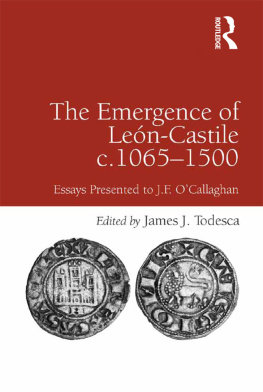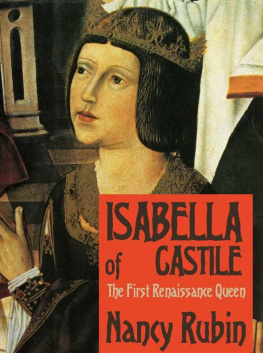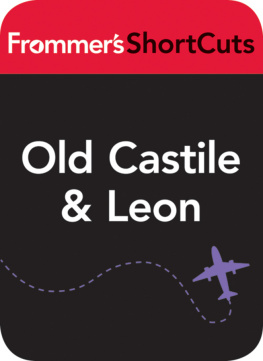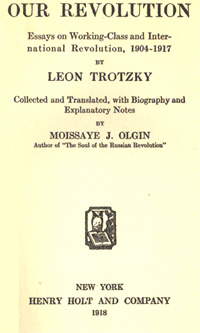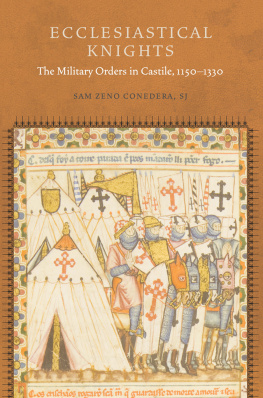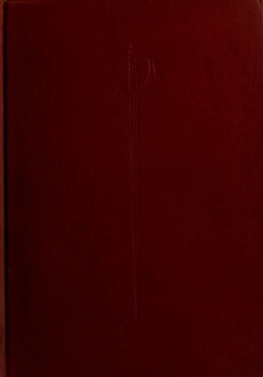THE EMERGENCE OF LEN-CASTILE C.10651500
J.F. OCallaghan (on left) with J.F. Powers and B.F. Reilly at the American Historical Associations Annual Meeting, January 2011 (Photo courtesy of Lorraine C. Attreed)
The Emergence of Len-Castile c.10651500
Essays Presented to J.F. OCallaghan
Edited by
JAMES J. TODESCA
Armstrong State University, USA
First published 2015 by Ashgate Publishing
Published 2016 by Routledge
2 Park Square, Milton Park, Abingdon, Oxon OX14 4RN
711 Third Avenue, New York, NY 10017, USA
Routledge is an imprint of the Taylor & Francis Group, an informa business
Copyright 2015 James J. Todesca.
James J. Todesca has asserted his right under the Copyright, Designs and Patents Act, 1988, to be identified as the editor of this work.
All rights reserved. No part of this book may be reprinted or reproduced or utilised in any form or by any electronic, mechanical, or other means, now known or hereafter invented, including photocopying and recording, or in any information storage or retrieval system, without permission in writing from the publishers.
Notice:
Product or corporate names may be trademarks or registered trademarks, and are used only for identification and explanation without intent to infringe.
British Library Cataloguing in Publication Data
A catalogue record for this book is available from the British Library.
The Library of Congress has cataloged the printed edition as follows:
The emergence of Len-Castile, c.1065-1500 : essays presented to J.F. OCallaghan / edited by
James J. Todesca.
pages cm
Includes bibliographical references and index.
ISBN 978-1-4094-2035-4 (hardcover) -- ISBN 978-1-4094-2036-1 (ebook) -- ISBN 978-1
4724-0044-4 (ePub) 1. Castile (Spain)--History. 2. Leon (Kingdom)--History. 3. Castile
(Spain)--Politics and government. 4. Leon (Kingdom)--Politics and government. 5. Law--Spain
-Castile--History--To 1500. 6. Law--Spain--Leon (Kingdom)--History--To 1500. 7. Castile
(Spain)--Kings and rulers. 8. Spain--History--711-1516. 9. OCallaghan, Joseph F. I. Todesca,
James J. II. OCallaghan, Joseph F.
DP136.E63 2015
946'.302--dc23
2014029257
ISBN 978-1-409-42035-4 (hbk)
Contents
Bernard F. Reilly
James J. Todesca
James F. Powers
Janna Bianchini
Manuel Gonzlez Jimnez
James William Brodman
Teofilo F. Ruiz
Nicols Agrait
Donald J. Kagay
Theresa Earenfight
L.J. Andrew Villalon
List of Figures
2.1 Obv. ANFVS REX Cross
Rev. +TOLETVM Two stars, two annulets
2.2 Obv. ANFVS REX Cross
Rev. +TOLETVO Christogram
2.3 Obv. +ANFVS REX Cross
Rev. +LEO CIVITAS Christogram
2.4 Obv. A_ _V_REX Cross, pellet in quadrant
Rev. S IA_O_ _ Christogram
List of Contributors
Nicols Agrait is Assistant Professor of History at Long Island University Brooklyn, Brooklyn, NY, USA.
Janna Bianchini is Associate Professor of History at the University of Maryland, College Park, MD, USA.
James William Brodman is Professor Emeritus of History at the University of Central Arkansas, Conway, AR, USA.
Theresa Earenfight is Professor of History at Seattle University, Seattle, WA, USA.
Manuel Gonzlez Jimnez is Professor Emeritus of Medieval History at the University of Seville, Seville, Spain.
Donald J. Kagay is Professor of History at Albany State University, Albany, GA, USA.
James F. Powers is Professor Emeritus of History at College of the Holy Cross, Worcester, MA, USA.
Bernard F. Reilly is Professor Emeritus of History at Villanova University, Villanova, PA, USA.
Teofilo F. Ruiz is Distinguished Professor of History and of Spanish and Portuguese at the University of California, Los Angeles, CA, USA.
James J. Todesca is Associate Professor of History at Armstrong State University, Savannah, GA, USA.
L.J. Andrew Villalon is Professor Emeritus of History at the University of Cincinnati, Cincinnati, OH, USA.
Preface
In the summer of 1986 I attended the American Numismatic Societys Graduate Seminar in New York City on Joe OCallaghans recommendation. Who knows? he said. Maybe they will give you a hoard to work with. I did indeed spend that summer reconstructing a hoard of thirteenth-century Castilian coins. But in the world of numismatics, the medievalist is often the red-headed step-child. Throughout the seminar, the graduate students presented updates on our projects, bringing samples of coins to the conference room to enlighten both colleagues and curators. The classicists could display beautiful high-relief Hellenistic coinsthe silver tetradachm showing Alexander the Great in the lion-skin headdress of Hercules always got a few ahs. Or they showed us equally well-struck coins with images of famous Roman Caesars. (Everyone had at least heard of Nero or Hadrian.) The Islamicists countered with gold dinars boasting epigraphy only they could read. The other medievalist in the group had one foot in Late Antiquity as he was working with Visigothic tremisses. Though verging on barbarous, they were at least gold and looked classical enough. Then came my turn to display small, greenish-black coins called denarii by the residents of medieval Europe. One needed a jewelers loop just to make out the embarrassingly crude images and legends on these pieces. The types, next to the Roman and Hellenistic portraits, resembled childrens renditions of kings.
But the worst indignities came when I spoke about the coins. As I elaborated on the monetary value of the coronados of Sancho IV of Castile-Len (128495), one of the Roman historians usually stifled a giggle. For him, the name Sancho conjured up images of Don Quixotes portly squire or perhaps one of Pancho Villas comrades complete with gun belts across his chest or, worst of all, the Frito Bandito. My colleague that summer, however, was not the first to find the names of Castilian royalty unusual. The British travel writer H.V. Morton remarked in 1955 that Castile was a Spain of confusing kinglets, of Sanchos and Alfonsos, and of ladies named Berengaria, Constance and Urraca. Morton would have sympathized with Matthews confusion.
Today these Sanchos and Alfonsos are becoming more familiar in the English-speaking world as they are often mentioned (without snickering) in college-level texts on medieval Europe. Only 11 years after my seminar among the classicists, Peter Linehan commented that the concept of Iberian peripherality, though venerable, might well be regarded as both pass and dated. By failing to recognize the political, economic and cultural ties between the Christian states of Iberia and the rest of Latin Europe, we run the risk of promoting the old adage that Europe stops at the Pyrenees. Indeed, a recent world civilization text includes medieval Spain in its chapter on Early African Societies. Ignoring the complexity of the sources surrounding the Muslim conquest of Iberia and drawing loosely on Ibn Abd al-Hakams ninth-century narrative, the text book tells students:

